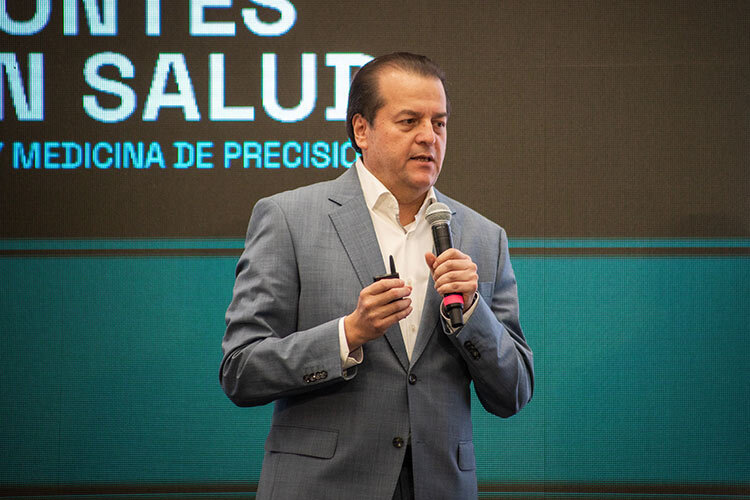One of Mexico’s most worrying public health issues is obesity. Every year, more children, young people, and adults suffer from this condition. Obesity policies are needed to combat it.
“The problem is so big and complex that strong actions by the government are required,” says Paola Abril Campos, research professor at the Public Policy Unit of Tec de Monterrey’s Institute for Obesity Research (IOR), in an interview with TecScience.
According to the results of Mexico’s 2022 National Health and Nutrition Survey (ENSANUT, in Spanish), the prevalence of adults with this condition in the country is 36.9%, which represents an increase of 21.4% since 2006.
For Gustavo Merino, research professor at the School of Government and Public Transformation and leader of the Public Policy Unit at the Institute for Obesity Research, it is important to remember that the problem is serious worldwide. “It’s growing all over the world, so we have to find better global solutions,” he explains in an interview.
Since 1975, obesity has almost tripled and more than 1 billion people are currently living with the condition around the world. The problem is becoming even more complex due to its impact on the rise of other diseases, such as diabetes, different types of cancer, and cardiovascular problems.
Solving the issue requires public policies that address all its angles and are based on rigorous scientific evidence. “In the ideal world, you want public policies to be based on the best evidence possible,” Merino says.
Evidence–Based Obesity Policy
Scientific evidence provides the information necessary to understand the problem in depth and show, for example, which populations are most vulnerable or what the best treatments are.
In addition, public policies must consider societal factors that influence whether they work or not, such as society’s perception or the budget available to create them. “In the real world, there are other factors to consider besides evidence,” says Campos.
In Mexico, the public policies that have been adopted so far have focused mainly on influencing the decisions that people make when choosing the products they consume, such as front-of-package labeling.
However, although people’s decisions are part of the problem, the researchers say it is important to understand that there are other factors to consider.
Obesity: A Multifactorial Issue
One of the most relevant factors is the obesogenic environment that predominates in developing countries like Mexico. In this environment, the foods offered to the population tend to be ultra-processed and high in refined sugars and fats.
Elements such as people’s average income, which gives them access to certain types of food, the lack of public spaces for physical activities, or insecurity, which could discourage people from leaving home to exercise, must also be considered.
Merino invites us to think about a person who works all day on the streets, like millions of others in Mexico, who mostly don’t have access to affordable and good quality food, in addition to spending hours on public transportation. “How are they going to have time to cook healthy food?” he asks.
For him, the perspective that the problem is mainly due to the decisions that people make is one of the reasons why public policies have not sought to influence other factors.
“We have to recognize that there has been a lot of very unfair discrimination and this is unacceptable,” says the researcher.
For Campos, food production and distribution must also be addressed with public policies. “If we all decided tomorrow to follow the recommended fish intake, would there really be enough for everyone?” she asks.
A few months ago, the researcher returned to Mexico after working at the World Health Organization (WHO) to contribute to a systemic view of obesity that leads to better public policies through research.
Insufficient Efforts in Mexico
In Mexico, there are important efforts by the government to address the problem, with examples such as the tax on sugary drinks and front-of-package labeling. According to Campos, the latter is one of the best examples of how scientific evidence can be the basis of effective public policies.
In 2019, after years of work by national and international researchers, as well as the National Institute of Public Health and international organizations such as UNICEF, clear front-of-package labeling on commercial products was adopted.
According to the researcher, this seeks two things: a change in purchasing patterns by the population and a reformulation of products by the industry.
So far, the interim results are promising; people self-report understanding the front-of-package labeling and considering it when deciding what to buy. However, it will take years to really know if these patterns have changed and if industries have reformulated their products.
For both researchers, although good efforts have been made in the country, what has been done is not enough; the problem continues to grow.
“We need to better understand obesity and rethink a national strategy to combat it,” says Merino.
The Future of Public Policies to Combat Obesity
Looking to the future, Campos explains that other actions are already being promoted to attack obesity. One is school breakfasts, where schools are expected to guarantee that at least one meal is healthy and nutritious for children, who are eating fewer and fewer fruits and vegetables.
This is also an opportunity for the government to ensure that those who supply the schools are local producers, thus reactivating the national economy.
Also, efforts have been made to implement dietary guides to explain to people what constitutes a healthy diet. In the United States, doctors are exploring the option of prescribing healthy foods, such as fruits, vegetables, whole grains, and low-fat proteins.
At the IOR, various projects are already underway to better understand the problem and propose efficient public policies. “The issue is big and I think we can contribute a lot, while also collaborating with the other units of the institute,” says Merino.
Campos also invites the population to mobilize and demand that the authorities guarantee their right to health and follow up on public policies so that they are truly implemented.
“Each of us must play our role and play it well: researchers doing good research, decision makers making good public policies, and citizens following up on them,” she says. Only then will we truly see a decrease in obesity.


















